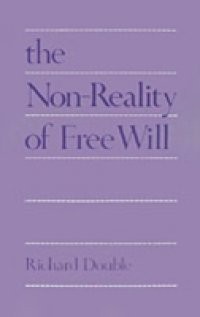The traditional disputants in the free will discussion--the libertarian, soft determinist, and hard determinist--agree that free will is a coherent concept, while disagreeing on how the concept might be satisfied and whether it can, in fact, be satisfied. In this innovative analysis, Richard Double offers a bold new argument, rejecting all of the traditional theories and proposing that the concept of free will cannot be satisfied, no matter what the nature of reality. Arguing that there is unavoidable conflict within our understanding of moral responsibility and free choice, Double seeks to prove that when we ascribe responsibility, blame, or freedom, we merely express attitudes, rather than state anything capable of truth or falsity. Free will, he concludes, is essentially an incoherent notion.

